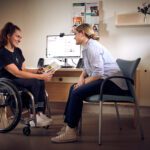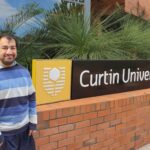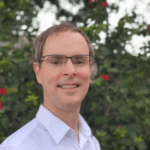For more than two decades, Curtin researchers have been looking at ways to improve society’s sexual health. Today, multiple groups are benefitting from this research and better access to information about their sexual wellbeing. These include school students, teachers, parents, migrants and mobile populations, as well as those of diverse sexuality, gender and Aboriginal and Torres Strait Islander people.
Teaching the teachers
“Today’s young people are grappling with an unprecedented number of issues,” says Curtin Associate Professor Sharyn Burns.
“Social media use, pornography, gender diversity, discrimination, violence and the complexity of relationships, just to name a few. Sex education in schools is now more critical than ever.”
But while relationships and sexuality education (RSE) are important curriculum learning outcomes, Western Australian teachers say they feel ill-prepared to tackle the tough topics.
To combat the lack of teacher training, Burns launched the Curtin RSE Project, funded by the Department of Health, to equip teachers with the skills to confidently teach RSE in the classroom. It also facilitates strategies to enhance the school environment and ethos, as well as engaging parents and the community.
“We offer intensive professional development, symposiums and short face-to-face and online training,” she explains. “We have developed a specific unit for pre-service teachers, embedded in the Curtin School of Education curricular, making us one of just two universities in Australia to offer a specific RSE unit for teachers.”
The training has attracted positive feedback from teachers who credit the course with increasing their confidence and comfort in teaching RSE and facilitating related activities.
Now the project has shifted in scope to developing a whole-school approach to RSE delivery.
 “We’re working closely with four unique school communities to build a case study,” Burns says. “We’ve engaged a primary school, a secondary school and a special needs school in the metropolitan area and a remote rural school with a high Indigenous population. The case study approach allows the schools to implement strategies specific to their school communities.”
“We’re working closely with four unique school communities to build a case study,” Burns says. “We’ve engaged a primary school, a secondary school and a special needs school in the metropolitan area and a remote rural school with a high Indigenous population. The case study approach allows the schools to implement strategies specific to their school communities.”
In addition to teacher training, the Curtin school-based sexual health program is also focused on improving take-up rates for the human papillomavirus (HPV) vaccination.
“The HPV vaccination has been provided through the school-based vaccination program to girls since 2007, and boys since 2014,” says Burns.
“To increase full coverage, our formative study, funded by the Department of Health, found a multifaceted approach including education, different approaches to parental consent, and intensive follow-up is needed.”
Addressing HIV in mobile and migrant populations
Despite a nationwide decline in HIV diagnoses in recent years, known cases of the virus within Australia’s mobile and migrant populations have been on the rise.
For more than a decade, Curtin researcher Gemma Crawford and colleagues have been exploring this issue.
“High income countries, such as Australia, have seen an increase in HIV notifications among those migrating to Australia – and those travelling to and from countries with high HIV prevalence,” Crawford explains.
Crawford and her team have released HIV and Mobility in Australia: Road Map for Action, a report funded by the Commonwealth, with recommendations to inform national practice, policy and research. The report has led to subsequent national report cards and a range of collaborative research projects at the state and national level. The team has also established a national Community of Practice for Action on HIV and Mobility, a coalition of more than eighty members across Australia including universities, government departments and non-government organisations.
“Migrants from culturally and linguistically diverse backgrounds are emerging as a priority population in Australia,” says fellow Curtin researcher Associate Professor Alison Reid.
“They face significant barriers in accessing sexual health services, including testing and treatment for HIV and viral hepatitis which can lead to late diagnoses and poorer health outcomes.”
An Australian Research Council Linkage project led by Reid is testing the feasibility of a periodic national surveillance survey to determine knowledge, attitudes, and practices related to sexually transmitted infections and blood borne viruses for people born in Southeast Asia and sub-Saharan Africa.
The project is a collaboration with fifteen partners across five states.
Closing the gap
Australia’s Indigenous communities are particularly vulnerable to sexual health-related illnesses.
“ Sexually transmitted infections and blood borne viruses are more prevalent among Aboriginal and Torres Strait Islander populations than non-Aboriginal populations,” explains Curtin researcher Dr Roanna Lobo.
Sexually transmitted infections and blood borne viruses are more prevalent among Aboriginal and Torres Strait Islander populations than non-Aboriginal populations,” explains Curtin researcher Dr Roanna Lobo.
Lobo is working with the South Australian Health and Medical Research Institute to evaluate sexual health promotion programs aimed at young Aboriginal and Torres Strait Islanders.
“The Young Deadly Free peer education pilot program and the Young Deadly Syphilis Free campaign are aimed at young Indigenous people aged between 16 and 29 years, who live in remote and very remote areas of Australia,” she says.
Building research capacity
Lobo also leads the Sexual Health and Blood-borne Virus Applied Research and Evaluation Network (SiREN) established in 2012. Funded by the State Department of Health, the project supports service providers, researchers and policy makers who work in the sexual health and blood-borne virus space to engage in research and evaluation.
Supporting transgender identity
“Individuals who belong to sexual and gender minority groups are often the target of stigma, prejudice, discrimination, harassment, abuse and violence,” says Curtin Associate Professor Sam Winter.
He says these experiences can drive individuals to the margins of society and render them vulnerable to poor health outcomes.
 “Stigma and prejudice in the workplace can lead to unemployment, which is often associated with poverty and poor health,” he says.
“Stigma and prejudice in the workplace can lead to unemployment, which is often associated with poverty and poor health,” he says.
“Transgender people can encounter great difficulties getting a job. They are driven by circumstance into a relatively narrow range of occupations, including sex work.”
Winter and colleagues have partnered with the United Nations Development Program and the Asia-Pacific Transgender Network (APTN) to examine discrimination against transgender people applying for jobs in Malaysia, Singapore, Thailand and Vietnam. Their initial report Denied Work, details substantial discrimination in all four countries. APTN is drawing on the findings in advocacy work across the region.
“Transgender people face challenges not only in getting a job but in leading their lives more generally, particularly when their identity documents do not conform to their gender identity,” says Winter.
He has examined the degree to which transgender people who hold gender affirming documentation enjoy improved mental health and wellbeing.
“There is a clear link,” he says. “The more gender affirming documents a person holds, the better the mental health. A number of states, including Western Australia, are reviewing their legislation on gender recognition, so this research has significant potential to impact on policy.”
Winter is working closely with UNESCO and Education International to examine the attitudes and beliefs of teachers based in the Asia-Pacific region towards sexual and gender minorities. The research team are exploring attitudes in a wide range of countries, including India, Nepal, the Philippines and Australia. The research builds on an earlier project with UNESCO to develop tools to promote inclusion in schools.
“The current findings have revealed that there is a wide range of attitudes and beliefs towards lesbian, gay, bisexual and transgender people,” he says. “Education International is already drawing on the findings in its work to advocate for equality and inclusion.”
Learn more about sexual health during WA Sexual Health Week.



